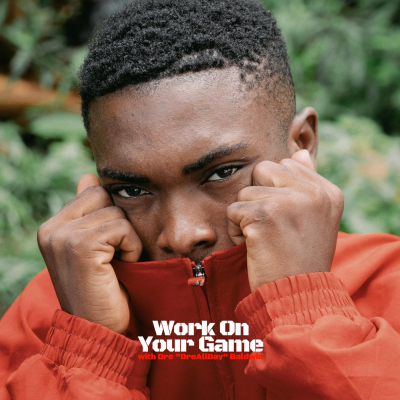From James Altucher…
“It’s really hard to interview athletes. Because their bodies do the talking for them. They are honed machines that act before they think. So often they don’t have the words to describe what they do.
So I can either nod and listen to their achievements. Or really try to get them to break down what they do to achieve such success. This happens not just in sports but with any people who have been successful a long time. They forget the initial language of success.”
This is one way I get ideas: noticing the challenge James lays out here (the fact that he’s talking about athletes and that I am one is mere coincidence) and reverse-engineering it. Every problem is an idea.
People who are really good at something are often bad at explaining it. This is true. My entrepreneurial life began with me creating programs teaching players how to practice — which I could do, because I knew how to explain what I did.
The formula is simple —
1) Become really good at what you do to the point that it’s notable; i.e. your professional title is impressive. Ex: author. Professional basketball player. Lead designer at Louis Vuitton.
This step can (and often will) take YEARS. Don’t let the simplicity of what I’m saying fool you into thinking it’s easy.
2) Make it known that you’re good: sell your stuff, advertise, appear in media, publish content. Hire a manager or agent whose very job is to hype you up to the world.
This is the athlete making and maintaining a few social media accounts; the designer can do the same. Both will probably have media opportunities coming their way.
If you’re an author, you can pitch yourself to guest post on blogs or on book-writing podcasts. A YouTuber can collaborate with other YouTubers and build their audience. If you post great photos, spend a few bucks and promote your posts.
3) When people start asking you how you did your stuff, create offerings that teach the answers. This can be in the form of books, courses, live or online workshops, seminars, group coaching, one-on-one consulting, or even a full service product where you do it all for them instead of teaching them to do it.
4) Promote your for-sale offerings by touting your credentials. In other words, toot your own horn — artfully but clearly. There’s both an art and a science to selling yourself that many need to learn (there’s a course called Sell Yourself in the Game Group Membership; will be available a la carte maybe by the time you read this).
I know people who haven’t quite mastered anything, so they can’t sell the way I’ve described. I also know people who are really good — better than me at what they do — who couldn’t sell beer on a college campus.
People who’ve achieved the combination of being notably accomplished AND who can sell is a rare occurrence. So don’t fret if you’re not there yet — when you do, there will still be plenty of room.
But since your life won’t go on forever, you should probably hurry up.
A have an entire chapter to selling yourself in my book Work On Your Game: Use The Pro Athlete Mindset To Dominate Your Game In Business, Sports, and Life. So you should order your copy because you’ll also get $1300 in free digital bonuses immediately after while we ship your book out.
Get Work On Your Game here: http://WorkOnYourGameBook.com


